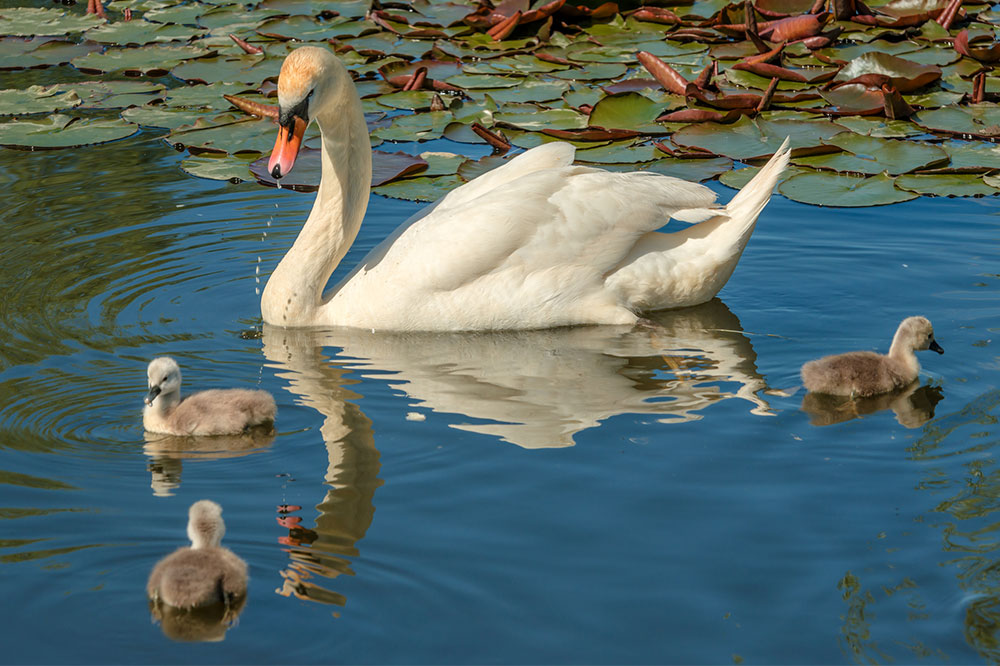There won’t be any cygnets this year. The cob was on the lake this morning on his own, occasionally slapping the water, floating without any evident purpose. His last children were taken away to new homes a year ago. His mate of years, the pen, died last spring.
People who live in the country always assume that no one in inner London has much idea of the seasons. But everyone who goes to the park notices some annual events. One used to be the nesting of the pair of swans, and the laying of eggs.
The swans look like ballerinas to many people, but to me they always look like London policemen
It’s hard not to look at some animals in your own terms, from a different species. My dog Greta believes that head and shoulders down, bottom up and waggling means ‘Come on, chum – let’s muck about’. In swans, however, that turns out to mean ‘Prepare to die, puny canine’. Outrage ensues. The swans look like ballerinas to many people, but to me they always look like London policemen – beefy, inexplicably prejudiced against whole communities, and always ready to tick off strangers when they spot an infraction.
The two swans nested every year in the reeds by a busy path. They ignored human passers-by, though they’d hiss at ducks who came too close. Once the cygnets emerged, the squad resembled a family determined to enjoy their roadside picnic, in a lay-by next to a pile of loose chippings. One year, I saw the pen on the nest with her new children, watching the cob tidying up the reeds and clearing their path to the open lake. His resentment was unmistakable. If she’d had arms, they’d be folded; if she could have spoken, she’d have said: ‘You’ve been saying you’ll clear out that garage for four months now.







Comments
Join the debate for just £1 a month
Be part of the conversation with other Spectator readers by getting your first three months for £3.
UNLOCK ACCESS Just £1 a monthAlready a subscriber? Log in